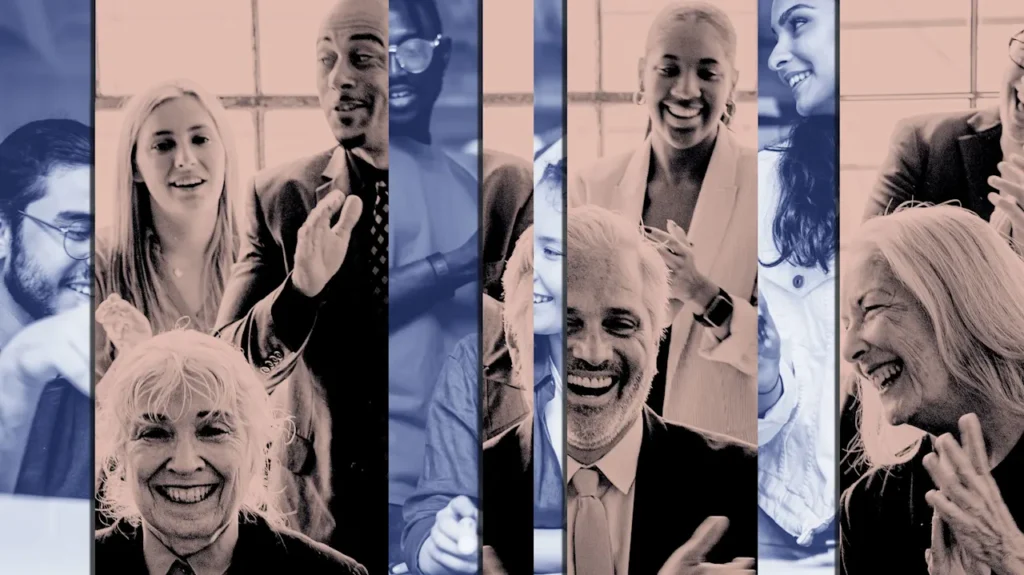
Ann Hummond knew the office software like the back of her hand. Based in Yorkshire, England, she could untangle any spreadsheet snafu in her sleep.
Over the past 23 years, she had worked her way up from a data entry clerk to her finance company’s administrative director, quietly becoming the person everyone relied on when things went sideways.
She was, in short, indispensable.
And then, one Tuesday morning last year, during a quarterly team meeting attended by directors, colleagues, and a team leader, her boss—who is nearly 10 years her senior—told her publicly, in a roomful of people: “You’re too old to do this job.”
“I must have looked like a goldfish with my mouth open,” says Hummond, whose name and location have been changed for job security reasons.
“I felt like I had been hit on the head with a shovel,” she says.
Hummond, who speaks about her experience for the U.K.’s Age Without Limits campaign to raise awareness of ageism in England, says she didn’t break down in the meeting. “I didn’t want to give him the pleasure of seeing how much he had hurt me,” she says.
Instead, she coolly finished her work day, gathered her belongings, “and then went home and fell to pieces.”
Although she took two weeks off work, quitting at the age of 64 was not an option. “I can’t afford to give up working. I have lots of responsibilities and a family to support, and I need to build up more savings.” She also knows the prospect of finding a new job often collides with the cold reality of age bias, and is still working at the company.
Age discrimination is one of the last accepted prejudices—tolerated in jokes, embedded in hiring, and often brushed off as pragmatism rather than bias.
In the U.S., legislation against it has existed since the passage of the Age Discrimination in Employment Act in 1967. Yet, “Between 1997 and 2024, the number of age discrimination charges filed with the EEOC exceeded 15,000 in every year except four—three of which were right after the pandemic, which caused a dip in all employment discrimination litigation,” says Nicole Buonocore Porter, law professor at William & Mary Law School.
Research suggests ageism is underreported to begin with.
Jobs, across cultures, are quietly coded by age. Regardless of industry, workers experience age discrimination across their careers: negative stereotypes, discriminatory recruitment processes, being passed over for training opportunities, not being recognized. Some studies suggest a staggering 77 to 93% of older adults report experiences with ageism, and 42% of hiring managers admit they consider age when reviewing résumés.
And most insidious of all: it compounds mentally and emotionally for those experiencing it, to the point where they really do feel like they might be incapable of doing great things at work.
“It’s illegal, it’s wrong, and it’s bad for business,” says author, speaker and activist Ashton Applewhite. “Older people make up the fastest-growing segment of the workforce, both because they need to work and because they want to.”
“Everyone, everywhere, is living longer, and everyone is old or future old.”
Microaggressions, major consequences
The rules are there, tucked neatly into HR handbooks and federal law. The trouble is, they rarely make it off the page, and holding people answerable is complicated.
“We’ve made progress in policy awareness, but not in accountability,” says Sheila Callaham, cofounder and board chair of Age Equity Alliance. “Many policies that would strengthen age protections at work have languished in Congress for years, leaving outdated frameworks in place.”
Even when cases do make it to the courtroom, such as 63-year-old James Barrios’ recent lawsuit against Atmos Energy Corporation and its affiliate, Atmos Energy Services, LLC, there are myriad reasons his case, and many others like it, will probably fail.
Most large employers require workers to agree to binding arbitration, which moves age discrimination claims out of court and into private proceedings, limiting transparency and reducing external enforcement of anti-age-bias rules, Callaham explains.
Another reason may simply be because of how deeply we internalize socially constructed beliefs.
A 2024 study found employees mimic the age discrimination they once experienced themselves, practicing negative observed and learned traits in a self-perpetuating cycle.
“Age discrimination varies from other types of discrimination—specifically race or ethnicity discrimination, and perhaps sex discrimination—in that most age discrimination is not based on animus, but rather, it is based on stereotypes about declining competence as one ages,” explains Porter.
Age discrimination also persists because of the subtle, covert ways it slips into daily life.
Ariane Froidevaux, associate professor of management at the University of Texas, Arlington, cautions research of overt age discrimination can overlook subtle “microinsults.” Seemingly innocuous comments like the once-ubiquitous “Okay, Boomer!” or “You’re pretty tech-savvy for someone your age,” she explains, can be insulting.
Froidevaux’s recent research about the changes in perceived age discrimination over time followed Swiss employees with the mean age of 42.64 over a six-year period. She examined how workers’ sensitivity to age discrimination is shaped by their cognitive frameworks: Those who see the world as fundamentally fair—”belief in a just world”—appeared to be less sensitive, and less likely to perceive increasing age discrimination at work, she explains.
Surprisingly, some older workers may also perceive decreased age discrimination over time—not necessarily because of a tangible reduction in patterns of behavior, but because, darkly enough, repeated exposure gradually numbs their response and desensitizes them. For instance, an older worker repeatedly passed over for high-profile projects may start to notice it less over time, as bias fades into background noise.
Yet, even when repeated exposure lessens its sting, other research finds that age discrimination still quietly chips away at workers’ confidence and perceived work ability—making it one of the more insidious forms of bias.
Hummond says it poisons even things like sick leave.
“My advice is try not to take too much time off for anything,” she says. “If you’re ill, you’re ill, but I feel judged in a way that youngsters aren’t.”
Nothing personal—and everyone’s next
We know discrimination against older workers has impacts on their well-being, mental health, and motivation. But it reshapes workplace dynamics for others, too.
“When exclusion of a certain group is embedded into the work culture, the safety of belonging is threatened,” explains Callaham, who calls this the “shadow threat” of ageism.
She coined the term after a 31-year-old tech worker told her that his 38-year-old manager was stockpiling savings in case he was fired for “being too old,” stoking the younger employee’s own fears of being next. Collectively, this spawns a frenzied attitude—you’re never too young to start running out of time.
What we can do
Research suggests age diversity statements have a positive impact, while Applewhite makes a case for blind interviews.
“Many orchestras use blind auditions, where musicians perform behind a screen, in order to diversify their ranks. How about replicating this in business practice? Conducting virtual interviews with the camera off?”
Callaham adds debunking age stereotypes starts with awareness, which can in turn increase accountability. “When organizations talk openly about how age bias shows up, they’re better able to build systems, habits, and expectations that make inclusion real,” she says.
“Managers and HR professionals can do a lot to prevent age discrimination at work by modeling and adopting an age-inclusive culture,” says Froidevaux.
In Hummond’s case, she was (and still is) the person the office turns to for her technical prowess and knowledge of the company, but things have turned “pretty sour.”
Over the past year, her responsibilities have been reduced and flexible work arrangements withdrawn.
“I don’t feel trusted,” she says, “I’ll knock on a door and hear the conversation stop.”
For her colleagues, too, the atmosphere in the office is different, more guarded: “You go in on a Monday and nobody’s talking.” With its innate universality, few realize how toxic age discrimination can make workplaces, with everyone wondering “Who’s next?”
Hummond keeps working, still indispensable, still sidelined.
“I’m working down to retirement, but it’s not fun anymore,” she says.
